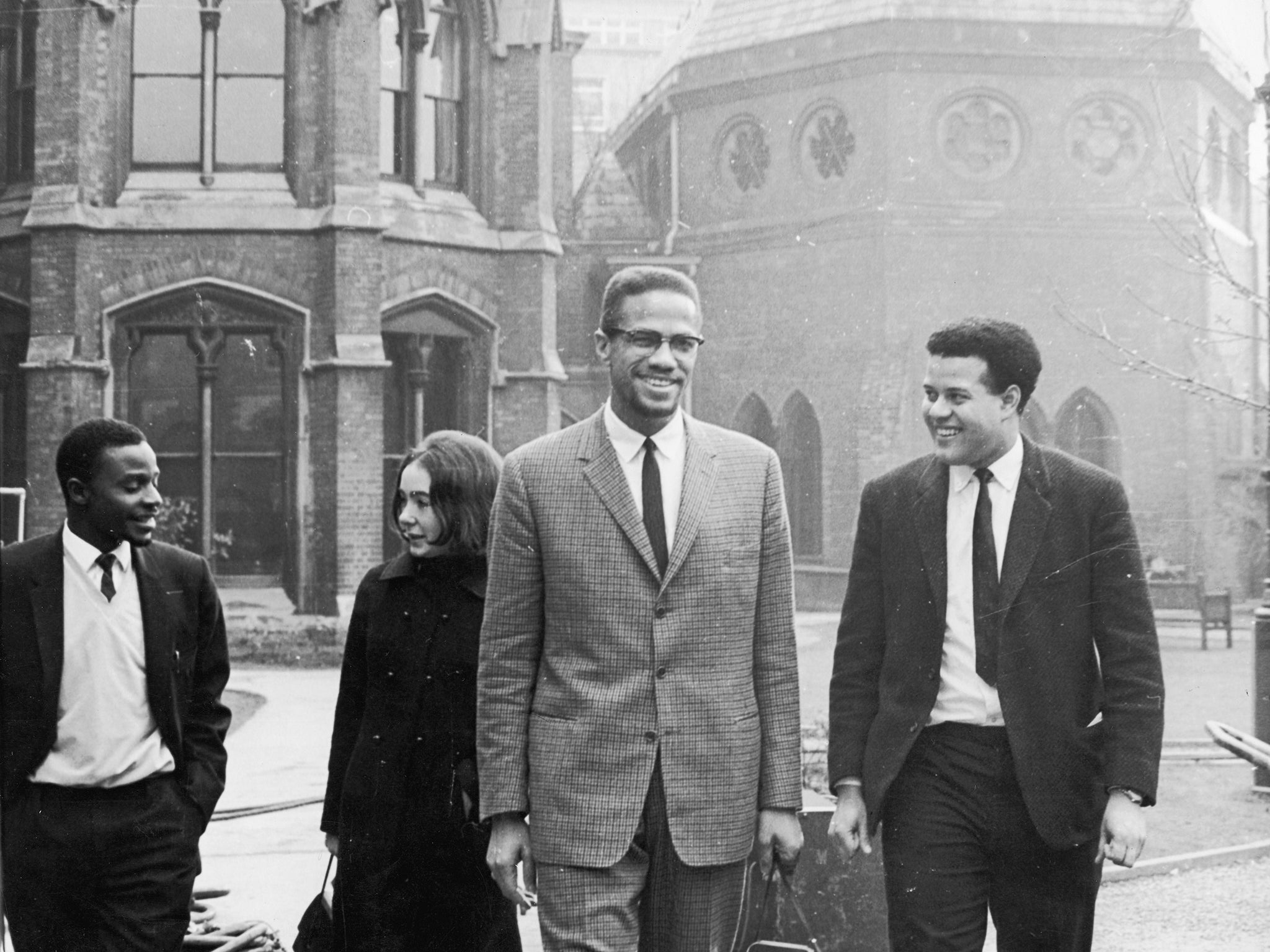The Night Malcolm X Spoke at the Oxford Union by Stephen Tuck, book review: Resurrecting the story of the British civil rights struggle
Who dares speak up in this way nowadays? If he were alive, this radical would be banned from Britain

Your support helps us to tell the story
From reproductive rights to climate change to Big Tech, The Independent is on the ground when the story is developing. Whether it's investigating the financials of Elon Musk's pro-Trump PAC or producing our latest documentary, 'The A Word', which shines a light on the American women fighting for reproductive rights, we know how important it is to parse out the facts from the messaging.
At such a critical moment in US history, we need reporters on the ground. Your donation allows us to keep sending journalists to speak to both sides of the story.
The Independent is trusted by Americans across the entire political spectrum. And unlike many other quality news outlets, we choose not to lock Americans out of our reporting and analysis with paywalls. We believe quality journalism should be available to everyone, paid for by those who can afford it.
Your support makes all the difference.I thought I was an expert on black and Asian history in the UK.
Now, thanks to Stephen Tuck, I realise how incomplete this knowledge is. What’s more, by revealing unknown facts and dormant truths, through reflections and imaginative connections, he fundamentally reframes the narrative.
On December 3 1964, Malcolm X, black, Muslim and radical, spoke at an Oxford Union debate on extremism, injustice and freedom. He had been invited by Eric Anthony Abrahams, a charismatic Jamaican student who had beaten rivals Jonathan Aitken and Tariq Ali to become the Union president. This momentous event is used by Tuck to examine the “global, national, local and university politics of race”.The particular burns and expands infinitely, like an exploding supernova. Two months later, Malcolm X was assassinated by the men from the Nation of Islam, to which he once belonged.
He was big in Africa and Arabia. I was in Kenya when he spoke at the national assembly about international human rights. Though the Empire was ending, our minds remained colonised. Malcolm X radiated personal power and a frisson of danger. To us, the young, he was even more of a superhero than Martin Luther King.
Here in the UK, he had a similar impact – evoking fear in white imperialists and hope among people of colour. The book takes us through the histories of migration, racism and resistance, and most importantly, the political awakenings. Victorian England had people from all over the world, most of whom found it unspeakably hard. Britain’s top universities were “bastions of imperialist, elitist and even racialist thought”. Acclaimed Oxford professor Hugh Trevor-Roper, for example, thought Africa had no pre-European history. Academic bigotry proved to be an effective catalyst: “What is striking – and ironic – is how often non-white colonial students came to Oxford as imperial loyalists and returned home as nationalists.” If the empire was won on the cricket fields of Eton, it was lost on the croquet lawns of Oxbridge.
Those who had sailed across to work were also rapidly disillusioned. All this was happening long, long before the Windrush sailed into Tilbury. Black people were viciously attacked in the port cities and towns. And then blamed by politicians and the media, from left to right. For the Manchester Guardian, unrest was caused by the “low moral standards of the blacks ... who are taking the bread out of the mouths of discharged soldiers”. The oppressed fought back as best they could.
Malcolm X observed: “A black man is supposed to have no feelings and love his enemies no matter what kind of attack, verbal or otherwise ... But if a black man stands up in any way and tries to defend himself, he is an extremist.” Today racism and racial violence are rising in both countries. Who dares speak up in this way? If he were alive, this radical would be banned from Britain.
Tuck has resurrected the story of the British civil rights struggle, as resolute and stirring as the struggle in the US. Read it, be moved and enraged, and ask why antiracism gave up and went to bed.
Join our commenting forum
Join thought-provoking conversations, follow other Independent readers and see their replies
Comments